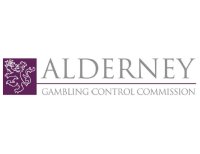Malta Denies Licensure of Lock Poker

 There’s controversy brewing on the Merge Gaming Network site Lock Poker. In recent days, the Malta Lotteries and Gaming Authority, or LGA, denied any endorsement of Lock Poker, posting on its website, “The Lotteries and Gaming Authority would like to inform the public that the website LockPoker.eu has no connection whatsoever with the Authority and therefore any mention of the Authority or license issued by the Authority on the mentioned website is false and misleading.”
There’s controversy brewing on the Merge Gaming Network site Lock Poker. In recent days, the Malta Lotteries and Gaming Authority, or LGA, denied any endorsement of Lock Poker, posting on its website, “The Lotteries and Gaming Authority would like to inform the public that the website LockPoker.eu has no connection whatsoever with the Authority and therefore any mention of the Authority or license issued by the Authority on the mentioned website is false and misleading.”
The LGA’s comment concluded, “The Authority advises the public to play responsibly with companies licensed by jurisdictions that have sound remote gaming regulations.” At the time of writing, the LGA’s logo continues to appear on Lock Poker’s dot-eu website, where it can be found at the very bottom. The LGA’s statement is dated August 25th.
 The Kahnawake Gaming Commission, or KGC, also licenses Lock Poker. The KGC’s emblem appears in the footer of Lock’s website alongside that of the LGA and LockPoker.com is listed as a KGC permit holder. In May, Lock Poker jettisoned its dot-com domain name in favor of a dot-eu home, mimicking other U.S.-facing sites like Bodog and Carbon Poker.
The Kahnawake Gaming Commission, or KGC, also licenses Lock Poker. The KGC’s emblem appears in the footer of Lock’s website alongside that of the LGA and LockPoker.com is listed as a KGC permit holder. In May, Lock Poker jettisoned its dot-com domain name in favor of a dot-eu home, mimicking other U.S.-facing sites like Bodog and Carbon Poker.
Merge Gaming Malta is listed as a Class 4 operator on the LGA’s website. Also found on the white list are familiar online poker networks like Boss (Fortune Poker) and B3W (Yachting Poker).
On TwoPlusTwo, posters bantered as to whether the LGA disavowing a relationship with Lock Poker jeopardized their faith in the site. One member of TwoPlusTwo wrote, “Unlicensed sites might be safer. The licenses, in case no one is paying attention, aren’t worth the paper they are printed on. What really matters is the character and experience of the operator and this is something no governing body can forge, produce, or replicate.”
Another poster reaffirmed that he’d continue to play on Lock’s real money tables anyway: “The money is safe on Lock Poker and I will continue to play there while you are at the play money tables. Lock has segregated funds and a gaming license.”
 Lock Poker is fresh off a scandal involving sponsored pro Jose GirahMacedo (pictured) that resulted in his banishment from the site’s Pro Team in favor of Leo Margets.
Lock Poker is fresh off a scandal involving sponsored pro Jose GirahMacedo (pictured) that resulted in his banishment from the site’s Pro Team in favor of Leo Margets.
To that end, on August 18th, Lock Poker’s Poker Room Manager, Eric Rizen Lynch, posted on TwoPlusTwo, “Lock is currently pursuing legal action against Jose, so we are unable to make a substantial comment at this time. We do realize that ongoing silence can lead to people jumping to conclusions. What happened goes against the very core of our player based philosophy and we intend on exercising our legal rights in the most severe degree. We will keep you updated as things progress.”
 Online poker players have become increasingly more aware of poker room licenses following Black Friday. In the post-Black Friday world, the Alderney Gambling Control Commission suspended Full Tilt Poker’s operating license supposedly due to the site’s inability to pay back U.S. players. Meanwhile, the KGC renewed Full Tilt’s secondary operating license shortly thereafter, a move that raised the eyebrows of many in the industry.
Online poker players have become increasingly more aware of poker room licenses following Black Friday. In the post-Black Friday world, the Alderney Gambling Control Commission suspended Full Tilt Poker’s operating license supposedly due to the site’s inability to pay back U.S. players. Meanwhile, the KGC renewed Full Tilt’s secondary operating license shortly thereafter, a move that raised the eyebrows of many in the industry.
According to Pokerfuse, “Most skins on the Merge Gaming Network – including Lock Poker – use a common accounting and cashier system. According to IP traces, the servers for the web-based cashier system are currently hosted in the Netherlands by a Kahnawake Mohawk service provider. Lock’s sister site, Lock Casino, operates on RTG software with a separate cashier system, and some players have reported that funds deposited in the casino can be transferred to the poker room.”
We’ll have more for you as it develops right here on PocketFives.com. Read more.




